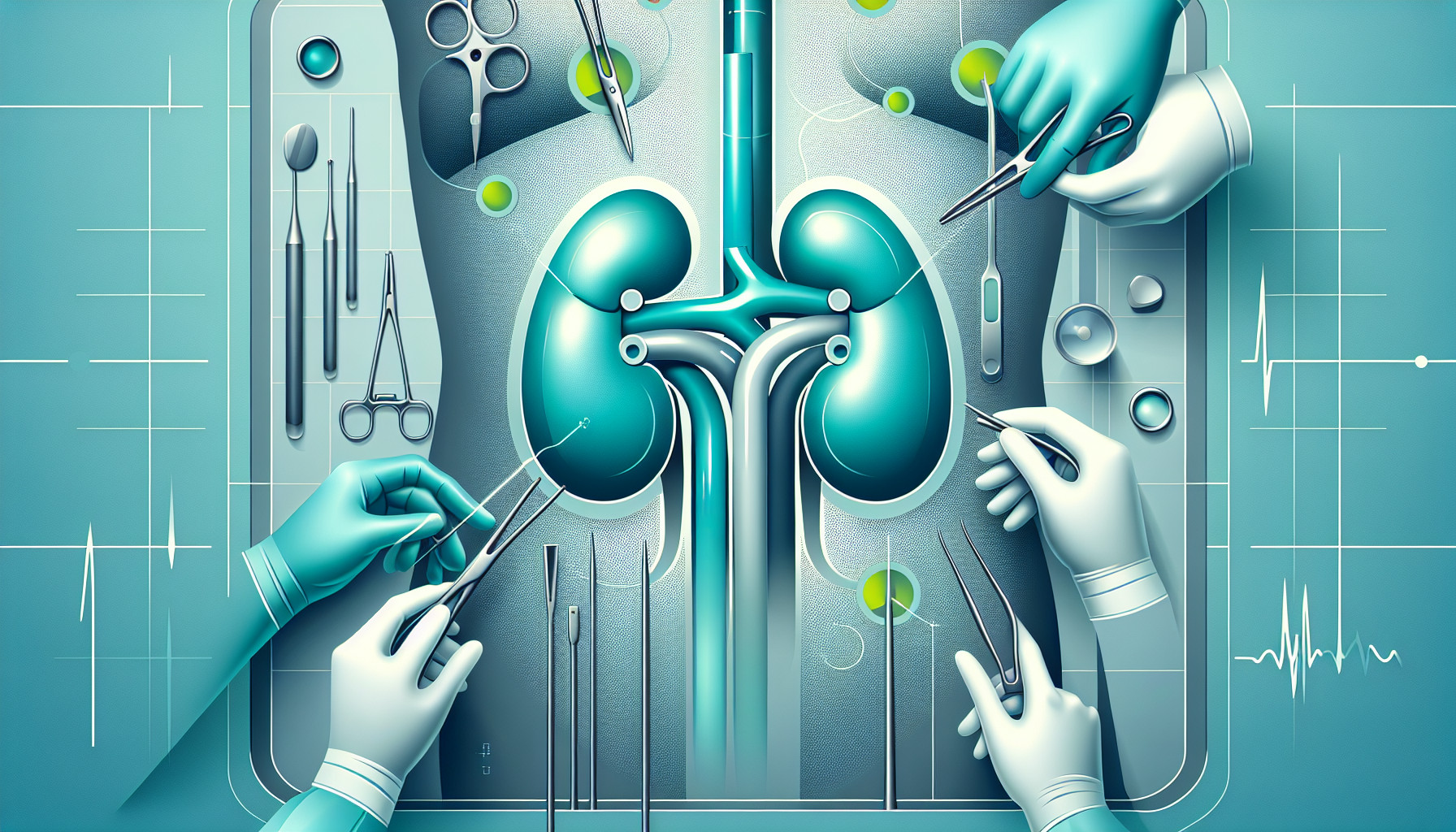Our Summary
This research looks at the effects of different types of dialysis treatments on people who are waiting for a pancreas-kidney transplant. The researchers wanted to see if the type of dialysis a person receives before their transplant could affect the success of the operation and their health afterwards.
They found 13 studies that involved more than 1500 people who had a pancreas-kidney transplant. They discovered that people who had a particular type of dialysis, called hemodialysis, seemed to have better outcomes after their transplant. Specifically, they were less likely to have their new pancreas fail and were at a lower risk of getting an internal infection.
However, the type of dialysis didn’t seem to affect the patient’s overall survival or the success of the kidney part of the transplant. Also, people who had hemodialysis were less likely to have issues with the surgical connection (anastomotic leak) or blood clotting in the new organ (graft thrombosis).
The researchers concluded that hemodialysis seems to be the better type of dialysis for people waiting for a pancreas-kidney transplant. However, they suggest that more detailed studies should be done to confirm these results.
FAQs
- Does the type of dialysis treatment impact the success of a pancreas-kidney transplant?
- What were the benefits observed in patients who underwent hemodialysis before their pancreas-kidney transplant?
- Did the type of dialysis affect the overall survival rate or the success of the kidney transplant?
Doctor’s Tip
One helpful tip a doctor might give a patient about kidney transplant is to consider undergoing hemodialysis as the type of dialysis treatment before the transplant. This type of dialysis has been shown to potentially lead to better outcomes after the transplant, such as lower risk of pancreas failure and internal infections. It may also decrease the chances of complications like anastomotic leak or graft thrombosis. However, it’s important to discuss this option with your healthcare team to determine the best course of treatment for your individual situation.
Suitable For
Patients who are typically recommended for a kidney transplant include those with end-stage renal disease (ESRD) who are not able to maintain adequate kidney function through dialysis, have a good chance of benefiting from the transplant, and are healthy enough to undergo surgery and post-transplant care. These patients may have conditions such as diabetes, high blood pressure, polycystic kidney disease, or other kidney diseases that have progressed to the point of needing a transplant.
Timeline
Before the kidney transplant:
- Patient is diagnosed with end-stage renal disease and is evaluated for a kidney transplant
- Patient undergoes various tests and assessments to determine eligibility for transplant
- Patient is placed on the transplant waiting list and begins dialysis treatment to manage kidney function
- Patient undergoes pre-transplant evaluations and meetings with transplant team
- Patient receives notification of a suitable donor match and undergoes the transplant surgery
After the kidney transplant:
- Patient is closely monitored in the hospital for any complications or rejection of the new kidney
- Patient is discharged from the hospital and continues regular follow-up appointments with the transplant team
- Patient may need to make lifestyle changes and take immunosuppressive medications to prevent rejection
- Patient gradually resumes normal activities and experiences improved kidney function
- Patient undergoes follow-up tests and monitoring to ensure the success of the transplant and overall health.
What to Ask Your Doctor
- What type of dialysis treatment do you recommend for me while I wait for a pancreas-kidney transplant?
- What are the potential risks and benefits of hemodialysis versus other types of dialysis in relation to the success of the transplant and my overall health?
- How might the type of dialysis I receive impact the functioning of my new pancreas and kidney after the transplant?
- Are there any specific considerations or precautions I should take if I am receiving hemodialysis in preparation for a pancreas-kidney transplant?
- What additional monitoring or follow-up care might be necessary if I choose hemodialysis as my dialysis treatment before the transplant surgery?
- Are there any alternative treatments or strategies that could be beneficial for me while I wait for the transplant, in addition to or instead of hemodialysis?
- Can you explain in more detail how the findings of this research study on dialysis and pancreas-kidney transplant outcomes might apply to my individual situation and treatment plan?
Reference
Authors: Li Y, Tang Y, Fan Y, Lin T, Song T. Journal: Int J Surg. 2024 Aug 1;110(8):5078-5086. doi: 10.1097/JS9.0000000000001542. PMID: 38701525
